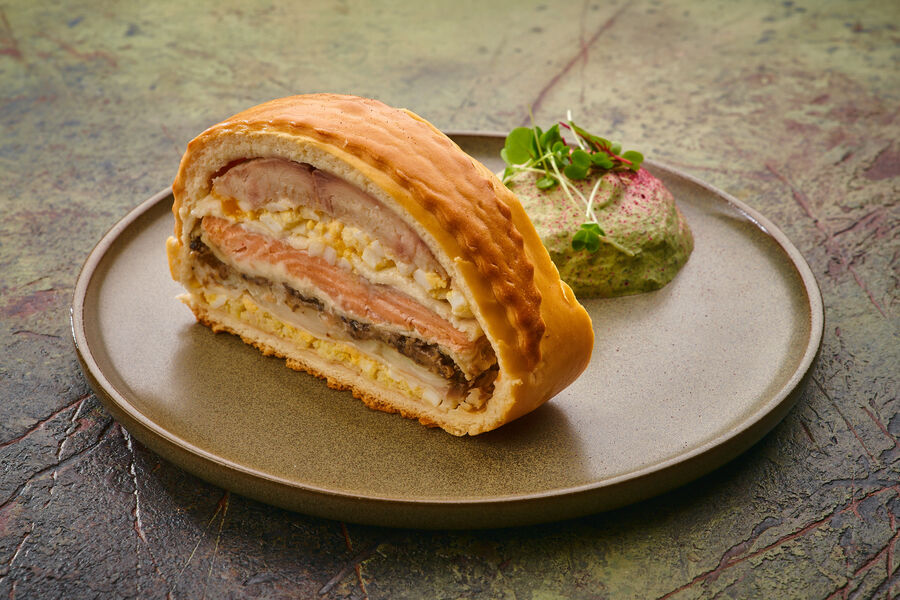Christmas in Russia, a time-honored festival rich in history and culinary traditions, offers an array of dishes that are not only a feast for the taste buds but also a reflection of the country’s cultural heritage. Until the 1920s, Christmas was the main winter holiday in Russia, and the festive menu was as grand as the occasion itself, boasting up to 50 dishes in noble households.
The Christmas feast begins with a 40-day fast, culminating on January 6, Christmas Eve. This period of fasting sets the stage for a sumptuous celebration, where Orthodox families prepare two distinct menus: one for Christmas Eve, adhering to fasting rules, and the other for Christmas Day, featuring richer, festive foods.
A traditional Christmas Eve dinner in Russia is a symbolic affair, often consisting of 12 dishes representing the 12 apostles. This custom, however, is more prevalent in Catholic and Orthodox communities in Poland, Ukraine, and the Baltic states than in Russia itself. The Russian Orthodox tradition, as detailed in historical texts like “Domostroy” from the 1550s and “The Table Book of Patriarch Filaret Nikitich” from 1623, suggests a lavish spread following the fast.

One of the enduring dishes from this era is sochivo, a porridge made from wheat grains, honey, poppy seeds, and nuts, symbolizing unity and prosperity. Accompanying this is a beverage akin to dried fruit compote, marking the end of the fasting period.
As the fast concludes, the culinary scene shifts to more opulent fare. Brand chef Vlad Piskunov of Matryoshka restaurant notes that the Christmas menu often mirrors the New Year’s menu, with a focus on seasonally available ingredients. A standout dish is the Christmas goose, traditionally prepared with apples, a nod to the historical unavailability of fresh apples during winter. Piskunov also recommends a quick kulebyaka, a pie filled with various fish types, mushroom caviar, and bechamel sauce, as a centerpiece for the Christmas table.

The preparation of these dishes is intricate and time-honored. For instance, the kulebyaka requires layers of sour dough, fish fillets, eggs, and sauces, all meticulously assembled and baked to perfection. The goose, on the other hand, demands careful marination and stuffing with winter apples, prunes, and nuts, resulting in a dish that’s both flavorful and festive.
An alternative to goose, as suggested by chef Konstantin Gushchin, is stewed lamb shoulder with pearl barley, porcini mushrooms, and lingonberries, offering a rich and hearty option for the Christmas feast.

In addition to these main courses, the Russian Christmas table also features an array of side dishes and salads, like the Olivier salad. Reimagined by chef Alexander Akimov of Reka restaurant, this salad incorporates crab meat, red caviar, and a blend of sour cream and mayonnaise, offering a luxurious twist to the traditional recipe.
The culmination of the Russian Christmas meal is often jellied meat, a dish shared by Vladimir Mukhin, chef of the White Rabbit restaurant. This dish, made from veal legs, beef shank, and chicken, is a testament to the rich and diverse culinary traditions that define Russian Christmas.

As we rediscover these age-old recipes, we not only celebrate the flavors of the past but also keep alive a vital part of Russia’s cultural heritage. This Christmas, let the spirit of Russia’s culinary history grace your table, bringing with it the warmth and joy of the season.

